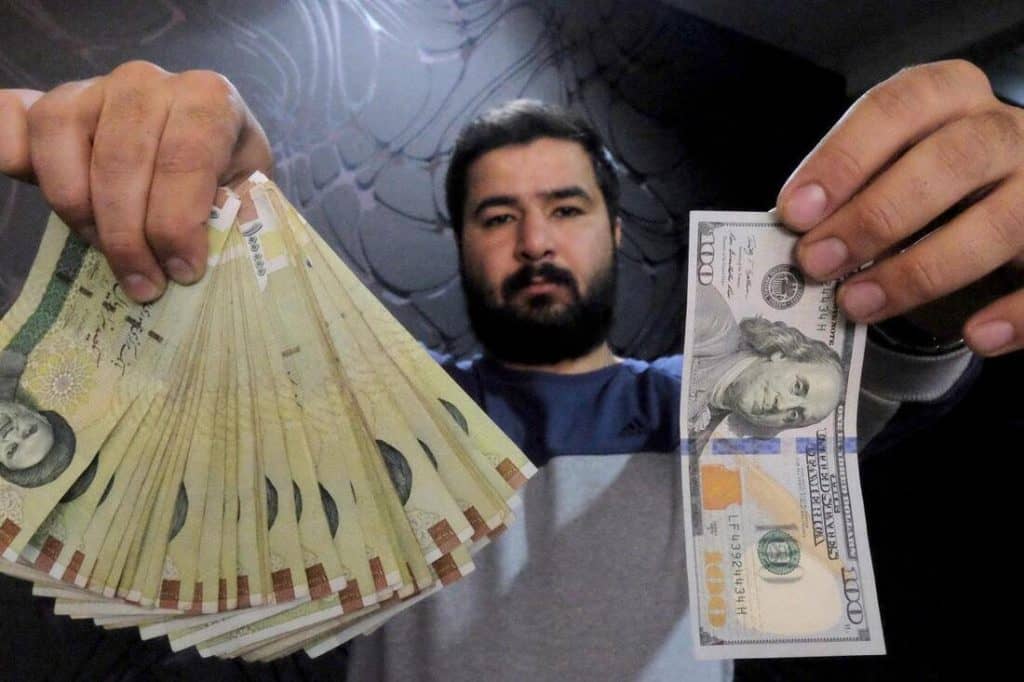

The rise in the prices of currencies and gold bullion in the Iranian financial markets last Saturday led to a decline in the price of the toman to an unprecedented level, as the price of one dollar exceeded 60 thousand toman. In this way, it appears that with the end of the regime’s propaganda program urging citizens to participate in the elections, the government’s efforts To control the exchange rate up to 50 thousand tomans by the end of the current Iranian year, which ends on March 21, the end of the road has been reached.
After the shock of the price increase last February and the measures of the Central Bank of Iran to control prices in the exchange market, analysts expect that the price of the US dollar exceeding 55 thousand tomans has been achieved, and it seems that neither the government nor the actors in this scene want to maintain the price of the dollar. low in the market.
Since the beginning of the last week of last February, the price of the dollar has stabilized in the range of 57 and 58 thousand tomans, but on February 28, due to a new wave of price increases in the foreign exchange and metal bullion markets, the dollar moved about 60 thousand tomans until it reached This peak was last Saturday, the second of March. It is noteworthy that despite the efforts made by the Central Bank to stabilize the exchange rate on the eve of the elections, it failed to prevent the continued growth of prices, and as a result the price of one dollar reached 59 thousand tomans by the end of the week.
The rise in the price of the dollar
Given the rise in the price of the dollar from last Wednesday to Saturday, it seems that the price of the dollar will exceed 60 thousand tomans during the next few days, and it is likely that it will reach 62 and 65 thousand tomans by the end of the Iranian year, which ends on March 21.
Economists’ expectations about foreign currency prices were fulfilled, as analysts had believed for months that the inflation process in Iran would make it difficult to fix the price of one dollar within the range of 50 thousand tomans, and it is expected that the price of the dollar will reach during the first months of the new Iranian year (1403 AH), which begins in March 20 to the threshold of 70 thousand tomans. The possibility of a rise in foreign currency prices has been reinforced by economists’ speculation at a time when the Central Bank realizes the impossibility of maintaining the mandatory exchange rate, trying to bring the price of the dollar during the first three months of the new Iranian year to the price it desires to prevent a sudden price shock.
The speed of movement of the dollar price from 50,000 tomans to the threshold of 60,000 tomans will likely be higher than the price set by the Central Bank to manage the consequences of the rise in foreign currency prices on the night of Nowruz. Therefore, the rise in the price of the dollar during the two weeks preceding the end of the Iranian year will affect the market. And the needs of families in the country. The rise in the price of the dollar in recent weeks has increased the gap between the exchange rate of the dollar in the Central Bank and its price in free markets. As is known, the official exchange rate of the dollar in the Central Bank is 42,900 tomans, and if the price of the dollar reaches 60,000 tomans by the end of next Saturday, This means an increase in the desire to obtain the dollar from the Central Bank at a price of 42.9 thousand tomans.
Considering that at the beginning of President Ebrahim Raisi’s government, the price of the dollar in the free market was 25,500 tomans, and the price of the government dollar in the Central Bank was 4,200 tomans, the high price of the dollar explains the failure of the economic and regulatory policies of Ibrahim Raisi’s government.
End
DINARIT is a worldwide Licensed financial Numismatic service offering currency exchange for Iraqi Dinar and other currency with lowest rates